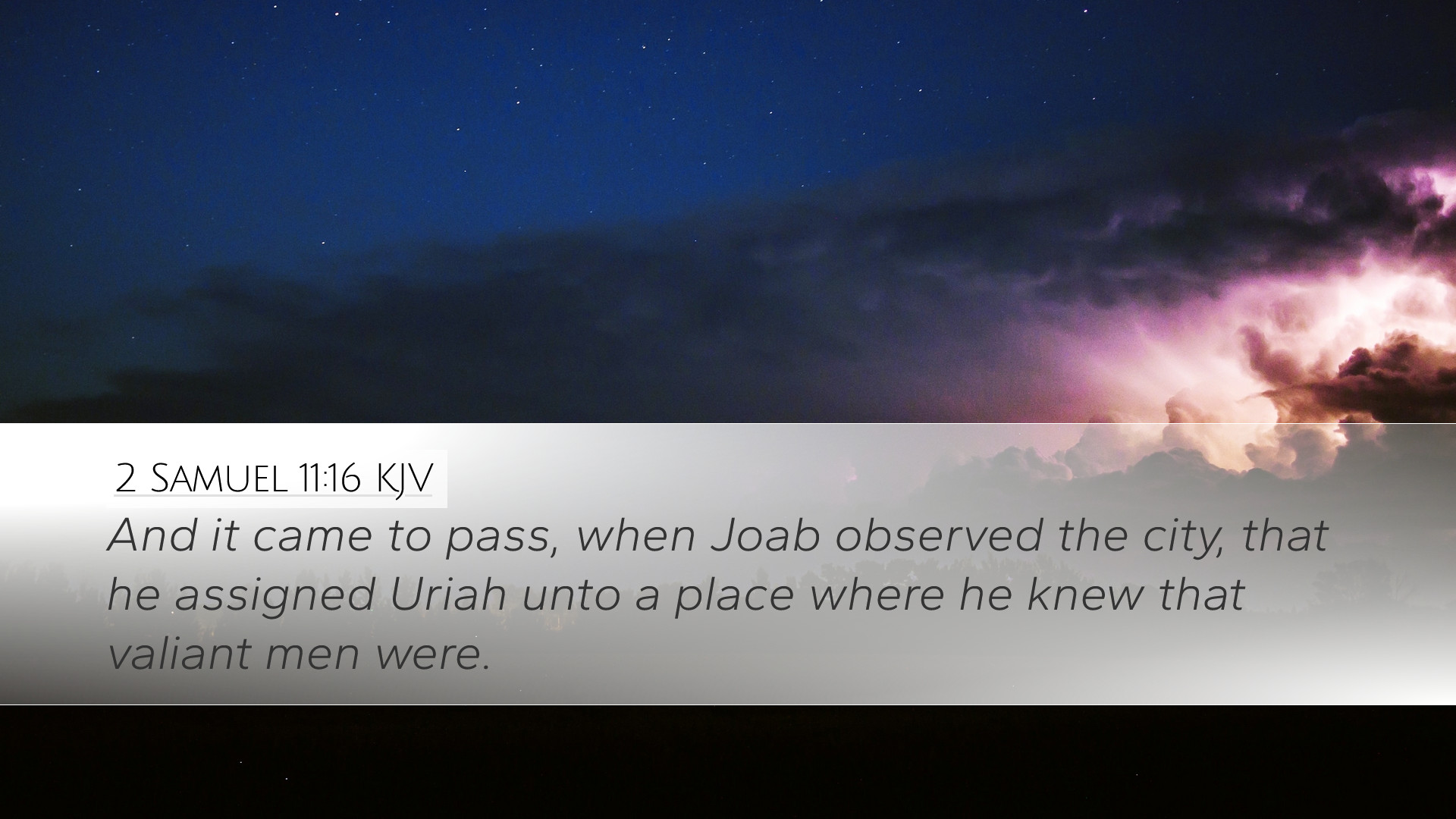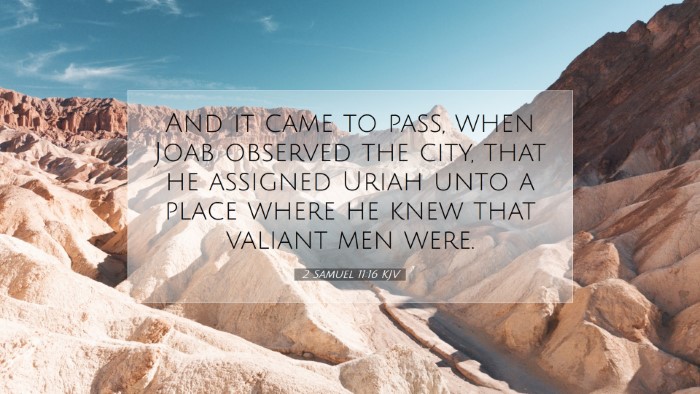Commentary on 2 Samuel 11:16
Verse Context: 2 Samuel 11 narrates the tragic story of King David’s sin with Bathsheba and the subsequent cover-up that led to the death of Uriah. Verse 16 reads:
"And it came to pass, when Joab observed the city, that he assigned Uriah unto a place where he knew that valiant men were." (2 Samuel 11:16 KJV)
Overview of the Passage
This passage takes place during a critical moment in King David's life, showcasing the consequences of sin and the manipulative power of human decisions. David, attempting to conceal his wrongdoing, sends Uriah, Bathsheba's husband, into battle where he is likely to be killed.
Insights from Commentators
-
Matthew Henry's Commentary
Matthew Henry emphasizes the moral implications of David's actions. He notes that David's decision to place Uriah in a precarious position is indicative of the depths to which sin can lead even the most righteous. Henry remarks:
"It is a sad truth, that the best of men may fall into the deepest sin. David’s heart was thus hardened by the deceitfulness of sin, leading him to act against his own loyal soldier."
Henry also highlights the role of Joab, who, being aware of David's intentions, carries out orders that are both dangerous and unjust. This act reveals the complicity of those around David, suggesting that when leaders stray from righteousness, they can lead others into complicity.
-
Albert Barnes' Notes on the Bible
Barnes offers a linguistic and historical analysis of the verse, noting the importance of the phrase "valiant men." He suggests that David's choice to send Uriah to such a dangerous location was not merely strategic but demonstrated a calculated betrayal:
"David's intention was clear; he sought to rid himself of Uriah not just to cover his sin, but had allowed a militaristic strategy to become a device of moral destruction."
Moreover, Barnes underscores the notion of providence, questioning how God permits such events to unfold to ultimately lead to David’s repentance and restoration. He posits that God's sovereignty remains intact even amid human failings.
-
Adam Clarke's Commentary
Adam Clarke expounds on the character of Joab, who executes David's order while reflecting on the moral degradation within the ranks of David’s leadership. Clarke writes:
"Joab's actions signify a troubling acceptance of immoral commands, highlighting how the vices of a ruler can lead to the erosion of integrity among those who serve him."
Clarke also points to the broader implications for leadership, emphasizing that any king or leader who operates outside of divine laws will suffer dire consequences due to an erosion of trust and responsibility.
Lessons for Modern Readers
2 Samuel 11:16 serves as a poignant reminder of the far-reaching effects of sin. The desperate measures taken by David serve as a cautionary tale for pastors, students, and scholars alike:
- The Danger of Compromise: This passage illustrates how small compromises can lead to larger moral failures. David’s initial decisions set in motion actions that culminate in tragedy.
- Leadership Accountability: The role of both David and Joab reveals the weight of leadership and the ethical responsibility leaders have to their followers. How they act shapes not only their lives but the lives of others.
- The sovereignty of God: Despite human failures, God remains sovereign. He can turn even the darkest circumstances into opportunities for redemption.
- The Importance of Integrity: Integrity in leadership should be paramount. The actions of David serve as a stark reminder that integrity nurtures trust within communities, serving to strengthen God’s people rather than divide them.
Conclusion
In conclusion, 2 Samuel 11:16 is rich with theological implications and moral reflections. Through the insights of renowned commentators like Matthew Henry, Albert Barnes, and Adam Clarke, readers are encouraged to reflect on the weight of their decisions, the importance of moral integrity, and the enduring grace of God amidst human failure.


